Childhood buried in trash
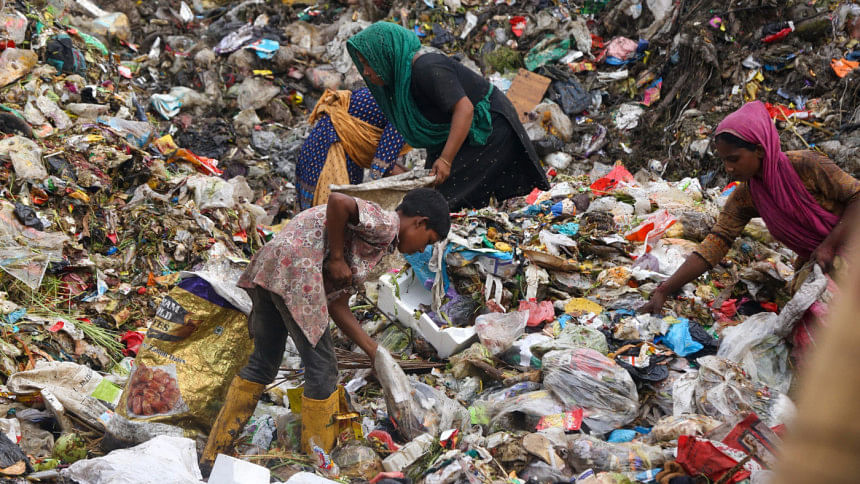
For the past decade, 18-year-old Raza has been wading through garbage to help his family survive.
Working at the Secondary Transfer Station (STS) in Ward-10, covering Arambagh, Fakirapool, and the Ideal School area, of Dhaka South City Corporation, he never attended school, having begun collecting and transferring waste when he was just eight.

"My father died long ago. I had to take up work to support my family...That's why I never got the chance to study," he told The Daily Star.
Robin, 18, from the Rayerbazar slums in Mohammadpur, splits his time between two STS sites in Wards 17 and 15, which cover Kalabagan and Dhanmondi. He dropped out in fifth grade, forced to choose work over education.
"I wanted to continue studying, but my family couldn't afford it. If I had a chance, I'd complete my education."
His mother, preferring anonymity, said, "I'm ill and don't have the means to pay for his education. My Robin works hard to support us and buy my medicine."
The Daily Star found children working in almost all STS facilities visited across Dhaka. STS is where solid waste is temporarily stored before being moved to landfills.
At five locations, at least a dozen minors were found on duty, most without proper safety gear.
At the Kalabagan STS (Ward 17), shift in-charge Jahangir Alam admitted to employing children.
"This site has about 20 to 30 child workers. Most are from the Rayerbazar slums. They work hard but earn very little."
They typically earn Tk 33 to 35 per hour, sometimes even less.
However, not all officials were forthcoming.
Mozammel, the shift supervisor at Ward-27's STS, covering East and West Razabazar, Indira Road, Farmgate, Monipuripara, the parliament area, and Sech Bhaban, denied the presence of underage workers.
"We don't hire children. I know they should be in school. If they come looking for work, I try to help them with money."
Yet during the visit, this correspondent found at least two underage boys sorting waste at that very site.
Similar conditions were observed at the Paribagh, Shantinagar, and Wari STS facilities.
Many of the children working have migrated from outside Dhaka, like 13-year-old Shadhin, from Mymensingh's Sherpur, who works at the Ward-10 STS for Tk 6,000 a month. "I send some of the money home and keep the rest to buy food," he told this correspondent.
According to DSCC, there are currently 66 STS units under its jurisdiction, with approximately 5,000 workers engaged in waste collection and transfer. DNCC oversees 53 STS units with around 220 workers officially recruited. However, there is no official data on child workers, as they are informally employed.
Many STS operations are privately managed, and children often enter this hazardous work without contracts, legal protection, or recognition.
Sajjad Mahmud Sohel, director of operations in Ward-15 (Dhanmondi), also acknowledged this reality. "In some cases, if a worker's parent falls ill or is absent, their children come in their place. Others are from families who simply cannot afford to educate them. These are poor families. While irregular, it does happen.
"If our inspectors find underage workers, we ask them to leave. We believe they should get education, but we cannot financially support them all."
According to the 2022 National Child Labour Survey, approximately 1.068 million children in Bangladesh are engaged in hazardous work. Conducted by the Bangladesh Bureau of Statistics (BBS) with support from the International Labour Organization, the survey found that out of 39.9 million children aged five to seventeen, 3.54 million are economically active. Of them, 1.776 million are involved in child labour.
The BBS also notes that many of the working children contribute as primary earners in their homes. Despite working long hours in harsh conditions, they are consistently paid less than adults.
Dr Hanif, a professor of nephrology at Anwer Khan Modern Medical College Hospital, warned of serious health risks.
"Child labour in waste handling is not only a rights violation; it is a public health hazard. They often suffer cuts from sharp, contaminated objects, risking hepatitis B, HIV/AIDS, and chronic infections. Many face poor nutrition, respiratory issues, and skin diseases."
He added that prolonged exposure to foul odours may dull their sense of smell. In extreme cases, a lack of medical care can lead to antibiotic resistance.
Wahida Banu, executive director of Aparajeyo Bangladesh, pointed to the policy vacuum. "Bangladesh adopted a national child labour policy in 2010, but there is still no standalone law to eliminate it. The government's action plan has stalled. Unless child labour is prioritised politically and budgeted accordingly, we will continue to fall short."
She stressed that poverty is not the only driver. "Many families push children into work because they don't see short-term benefits from school. But if the state invested in quality education, joyful learning, and targeted support through social safety nets or small enterprise funds, families might choose school over labour."
ASM Nazmul Haque, additional district officer for children's affairs at Bangladesh Shishu Academy, said some support exists.
"For children aged four to 16 from poor backgrounds, we offer free shelter homes where they can enrol between January and March. We also support education, healthcare, and psychosocial development. Currently, six 'Shishu Bikash' centres are operating across the country -- Khulna, Rajshahi, Chattogram, Gazipur, and Azimpur and Keraniganj in Dhaka."
The Shishu Bikash centres, launched in 2009 by the Department of Social Services and later handed over to the Ministry of Women and Children Affairs, aim to offer shelter and holistic care to children often neglected by both families and the state.
Still, government officials admit that awareness and investment are lacking.
Amal Krishna Mondal, additional secretary at the labour ministry, said, "There is still a serious lack of awareness around child labour. Many employers exploit children for cheap labour, and families push them into work for short-term relief.
"Our ministry is running several projects, but poverty remains a powerful driver. This is not a problem that can be solved overnight. It requires time, commitment, and collective action."

 For all latest news, follow The Daily Star's Google News channel.
For all latest news, follow The Daily Star's Google News channel. 



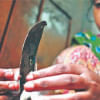
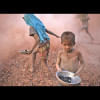
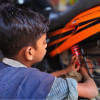

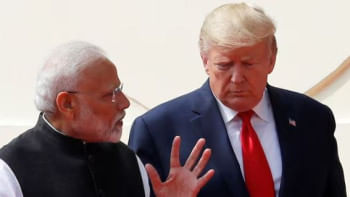
Comments